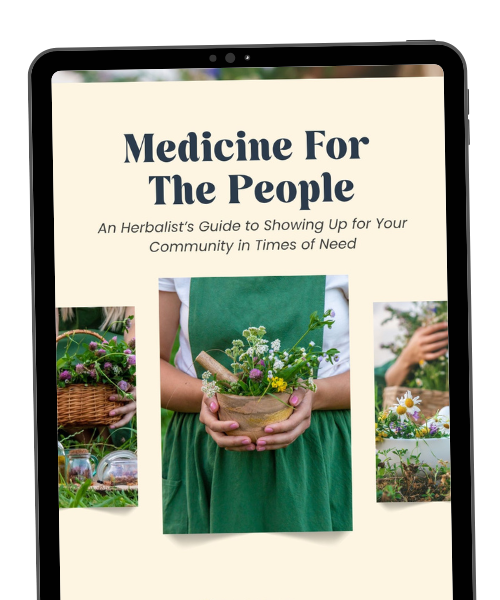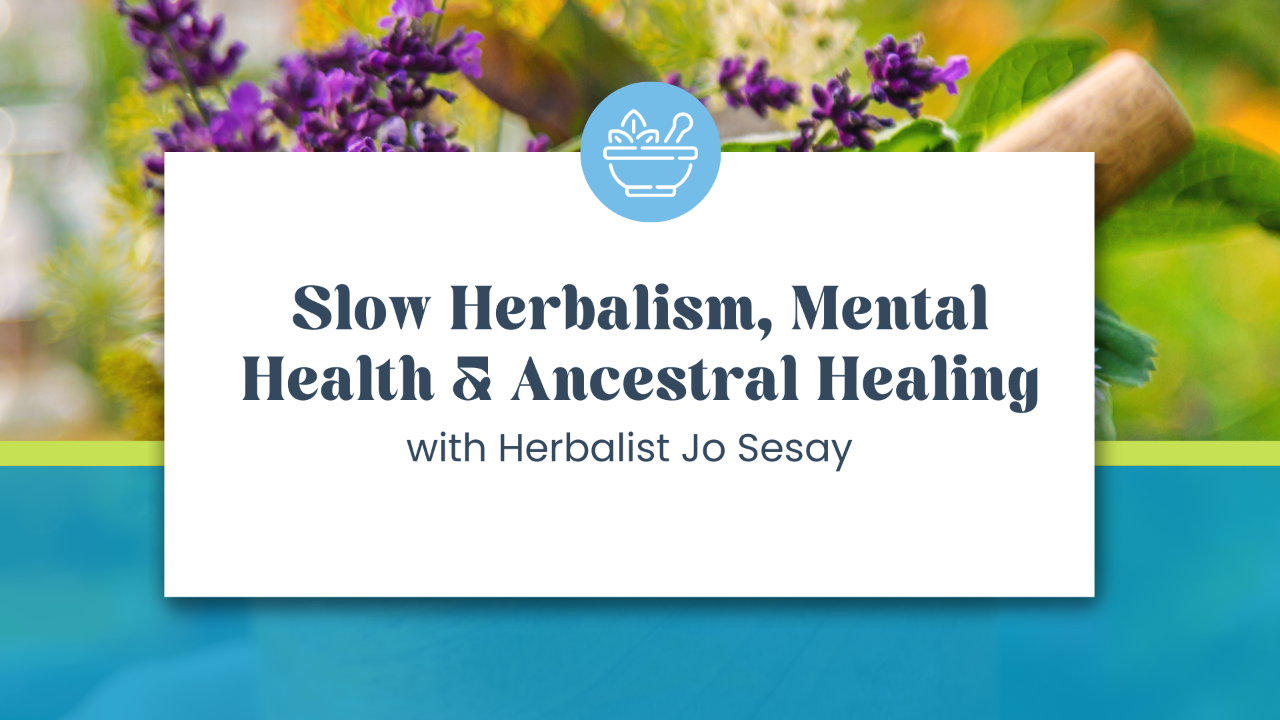Respiratory Herbs For Wildfire Smoke

Wildfire season is crazy to see happen. It's even crazier when you have one that's erupted just 5 miles (as the crow flies) from your house. The nasty feeling of smoke on your skin, and of course breathing it in, is just unbearable. So, I wanted to share some of my favorite herbs to turn to during wildfire season.
Finding Comfort in Nature Amidst Wildfires
Picture this: a week of camping, surrounded by family, on the picturesque Oregon coast. The cool, crisp air, the soothing sound of waves, and the joy of children playing – it was the perfect escape from the chaos of daily life. Little did I know that this serene getaway would soon be juxtaposed against the harsh reality of wildfires and their far-reaching consequences. As we headed back home, the air grew heavy with haze, and the once-pristine skies were tainted by the plumes of distant wildfires.
It's moments like these that remind us of the fragile balance between the beauty of our natural world and the challenges we face due to climate change.
Unseen Effects of Wildfires: A Personal Encounter
The aftermath of wildfires often leaves a mark that goes beyond the visible flames. It's the subtle changes – the altered air quality, the fading foliage, and the quiet struggle of trees – that resonate the most. As we journeyed home, I felt the change in the air as we left the coast behind. What was once lush greenery transformed into a landscape that seemed to mirror the urgency of our climate crisis.
Soon after, a late-night thunderstorm ignited a massive wildfire just miles away from my home. I shared glimpses of the eerie scene on social media – the stark contrast between a clear sky and a menacing cloud of smoke. While my family and I were safe, I couldn't shake the sadness of witnessing nature's battle against the flames.
Turning to Nature's Remedies: Herbal Allies for Soothing Smoke-Irritated Lungs
In times of distress, when the air turns thick with smoke and breathing becomes a challenge, nature's healing power shines through. That's where herbal allies come in. In my recent podcast episode, I delved into a selection of herbs that offer solace to our respiratory systems during these trying times.
Mullein (Verbascum densiflorum): An old friend, Mullein steps up with its soothing properties and its knack for calming the cough reflex. I love using both the flowers and leaves for their mucilaginous and saponin-rich qualities. When brewing Mullein tea, you're welcoming a gentle embrace for your respiratory tract.
Marshmallow (Althaea officinalis): Here's where the Mallow family shines, offering Marshmallow as a soothing demulcent. Its mucilaginous polysaccharides create a cooling, protective coating that brings relief to dry, irritated throats. You can infuse Marshmallow in honey or brew it into teas for a comforting remedy.
Elecampane (Inula helenium): This herb is a go-to for congested coughs and phlegm-filled throats. It eases discomfort with its expectorant properties, making it a staple in addressing chronic respiratory issues. Using the root, you can create teas or honey infusions to harness its harmonizing power.
Licorice Root (Glycyrrhiza glabra): With its multifaceted benefits, Licorice Root steps in as a demulcent hero. Not only does it lend a pleasant sweetness, but it also provides relief to raspy and inflamed throats. I recommend incorporating licorice into teas or herbal blends to amplify its soothing effect.
Everyday Herbal Allies: Nature's Comforts
While these herbal allies are remarkable, I understand that access to specialized herbs might not always be feasible, especially during challenging times. That's why I want to introduce some readily available alternatives found in most households:
Thyme: A kitchen essential that offers respiratory support by easing cough reflexes and loosening mucus. It's perfect for brewing into a tea or using for herbal steams.
Fennel Seed: Adding a sweet and palatable flavor, fennel seed contributes mucilaginous properties, bringing comfort and soothing relief.
Anise Seed: With a flavor reminiscent of fennel, anise seed enhances respiratory support and can be easily incorporated into teas.
Plantain: A humble wild weed, plantain's mucilaginous qualities provide relief to smoke-irritated lungs.
Closing Thoughts: Healing Through Nature's Wisdom
As I shared in the podcast, our connection to nature runs deep, and the impact of wildfires reminds us to be stewards of our planet. With the help of herbs like Mullein, Marshmallow, Elecampane, and Licorice Root, we can embrace nature's gifts to find comfort and healing even in the face of adversity.
So, let's remember the trees, the leaves, and the whispers of nature that often go unheard. By nurturing our relationship with the natural world, we take steps towards healing ourselves and our planet. Let's honor the ancient wisdom of herbalism, finding solace in a cup of Mullein tea or a spoonful of licorice-infused honey – a connection to the plants that have been our allies for generations.
In these challenging times, let's strive to be a part of nature's healing journey, nurturing the earth as it nurtures us.
Do You Have The Right Remedies On Hand?
Whether it’s a tummy ache, sleepless nights, or boosting immunity, The Ultimate Guide to Stocking Your Natural Medicine Cabinet has the top-quality remedies you need. Tested by a clinical herbalist—and her kid too!
Grab your guide below👇🏼
We hate SPAM. We will never sell your information, for any reason.







